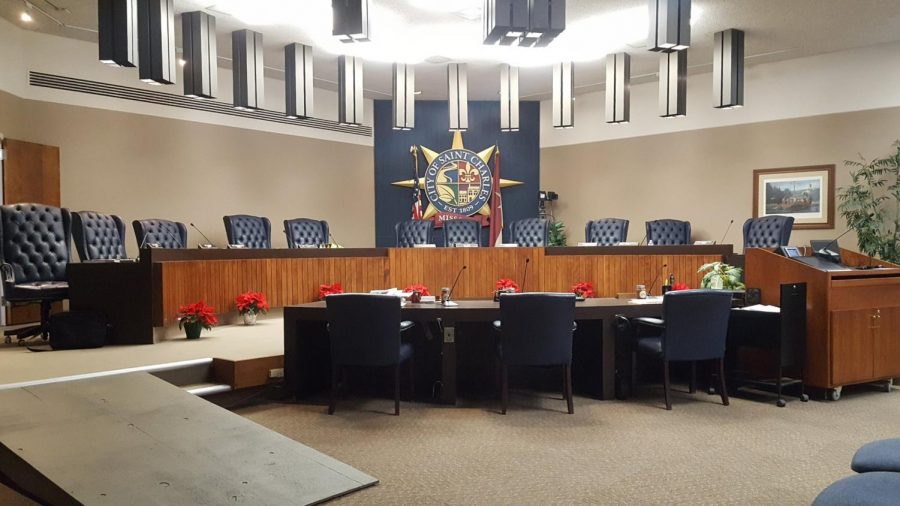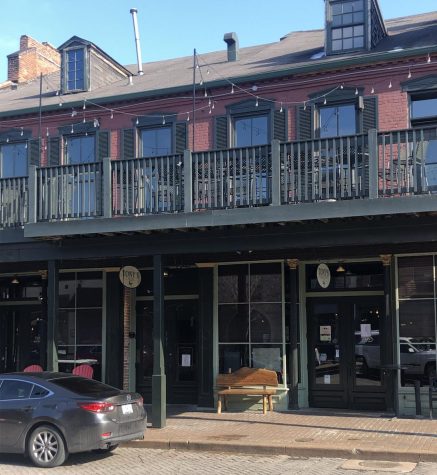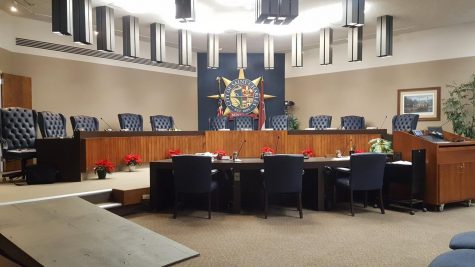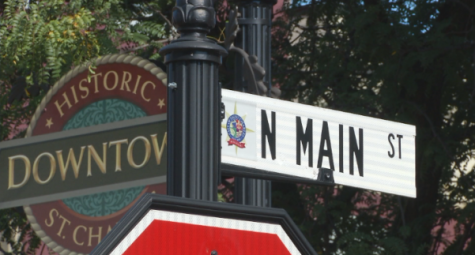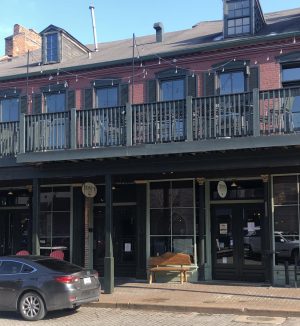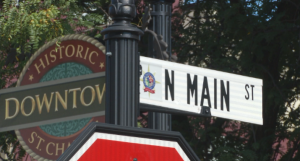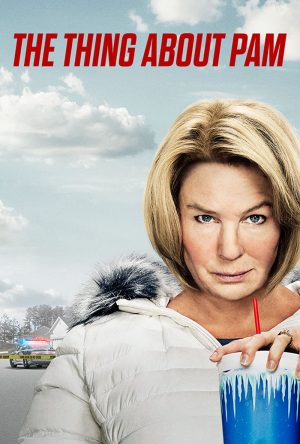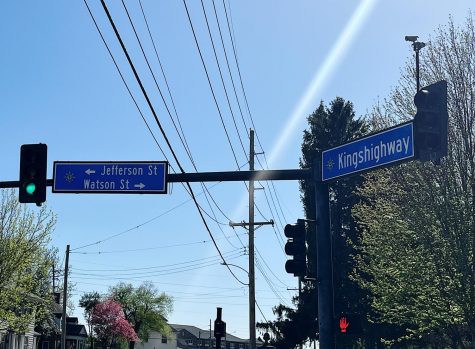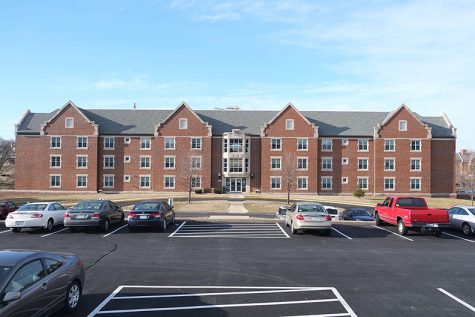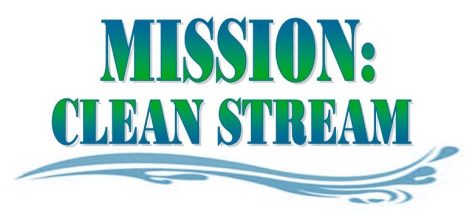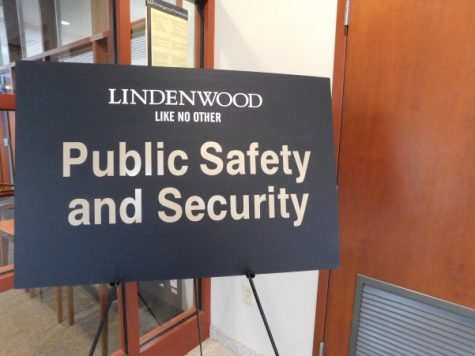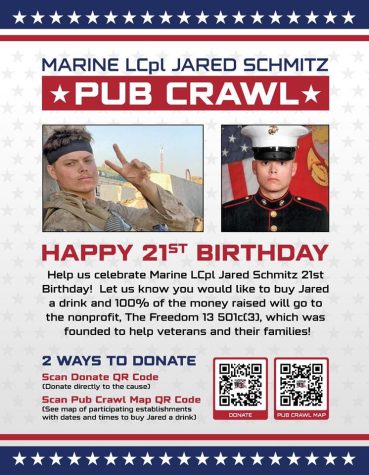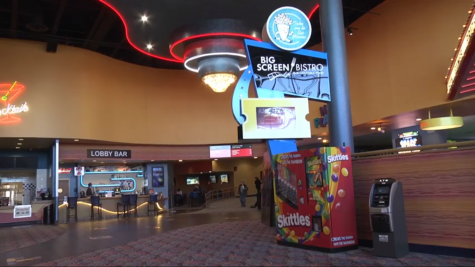City Council withdraws bill repealing North Main Street food quota
Photo by Matt Hampton
The St. Charles City Council chambers in City Hall.
February 20, 2020
The St. Charles City Council passed changes to the city alcohol law Tuesday but withdrew a bill which would have eliminated the requirement that restaurants on North Main Street earn no more than half their revenue from alcohol.
Instead, a compromise, which lowers the food requirement from 50% to 30%, will be up for a vote in the next city council meeting on March 3.
The bills are in response to a law passed in 2018 which imposed a requirement that businesses on North Main earn at least half of their revenue from food, not alcohol. The law’s supporters say it lowered crime in the district, but its opponents, including Mayor Dan Borgmeyer, have argued it is bad for business and did not cause the drop in crime.
The bill, which passed Tuesday, changes how liquor violations are punished.
Under the existing law, bar owners in St. Charles could have had their liquor license suspended if they get more than three points for violating the law. The new law lowers the amount of points for some violations, including serving minors, so that they would not put an establishment over this limit after only one offense.
All city council members who were present voted for the bill.
But the council voted to withdraw another bill which would have removed the controversial 50% food requirement. A new bill, which would change it to 30%, was introduced in its place.
City council member Vince Ratchford told Lindenlink that the council has had to work out a policy that has enough support to pass.
“What a certain group of people believe is best isn’t necessarily the will of the entire council, and it may not have enough support to pass, and you may hear feedback from other council members, you’re going to hear feedback from people who live and work in the area and own property, and that might change your mind,” he said.
Bills to repeal the food requirement were introduced twice last year, as well as earlier this month.
Mayor Borgmeyer said he still favors getting rid of the food requirement entirely but is willing to support the compromise.
“I think we need to be careful about condemning in a five-block area [bars and restaurants] that are proliferating and prospering and profiting all over the city,” he said.
Currently, two bars on North Main, Kubrick’s and Tuner’s, are exempt from the food requirement and allowed to sell only alcohol.
More than a half-dozen citizens spoke at the council meeting to voice concerns about the fact that the new bill would also allow up to two more alcohol-only bars.
After this, the council voted to amend the bill to lower the number of establishments on North Main not required to sell any food from four to three.
Among other business owners, April Moxley, who owns a home decor store on Main, described problems ranging from property damage to drunken fights among bar patrons, which “seemed to disappear overnight” after the 2018 law introduced the food requirement.
But Borgmeyer said what solved the problems the bars were causing was better policing and enforcement of existing laws, not the food requirement.
Tony Bethmann, owner of the bar and restaurant Tony’s on Main, laid into the city for not completely eliminating the food requirement.
“You’re going to go to court, and you’re going to stand in front of a judge and say, ‘This person sold 29% food, not 30% food; they need to be shut down right now’?” he asked the council. “Not because of underage drinking, not because of fights, not because they’re over-occupancy, but you’re going to really walk up in front of a judge for a ministerial issue such as they didn’t have enough chicken wings go out the door? That’s what this is about? Chicken wings?”
Bethmann also criticized allowing two new liquor-only licenses, saying they would be given out in “backroom deals.”
The law passed Tuesday also lets liquor license points expire after 12 months and establishes an appeal board for liquor license violations. Previously, violations were appealed to the same board that issues them.



